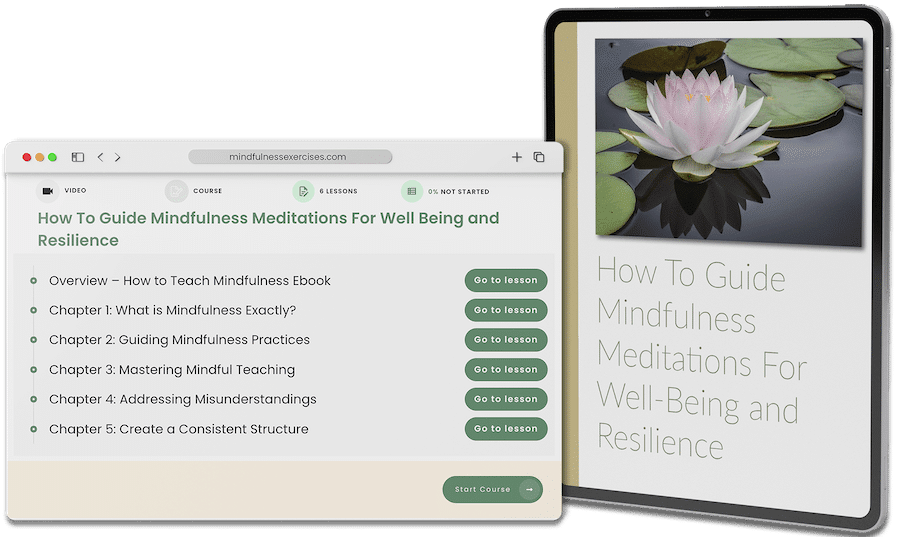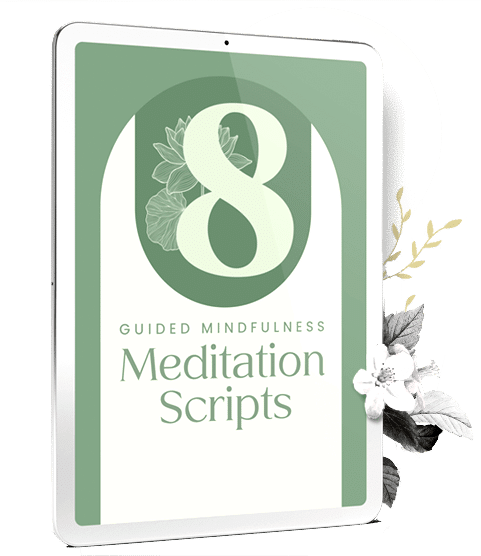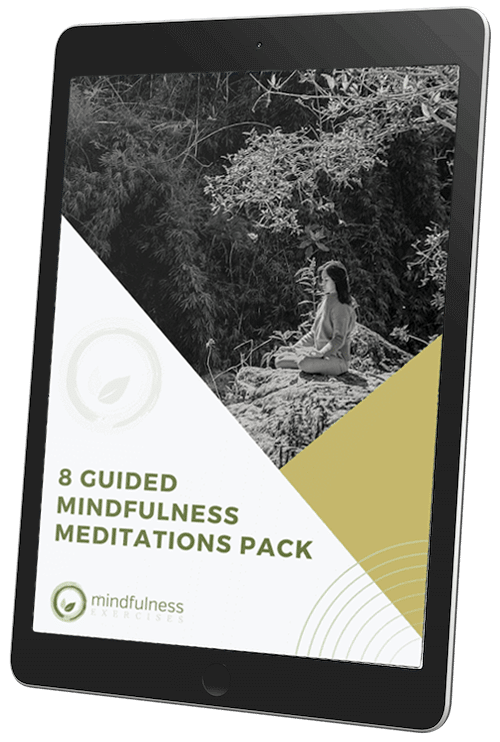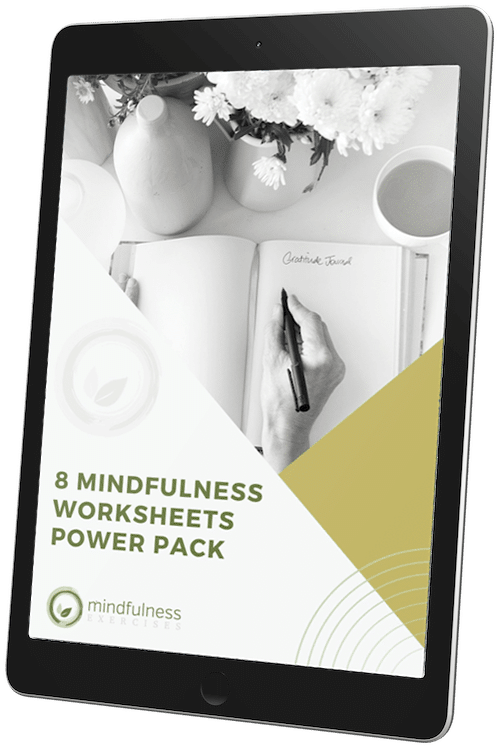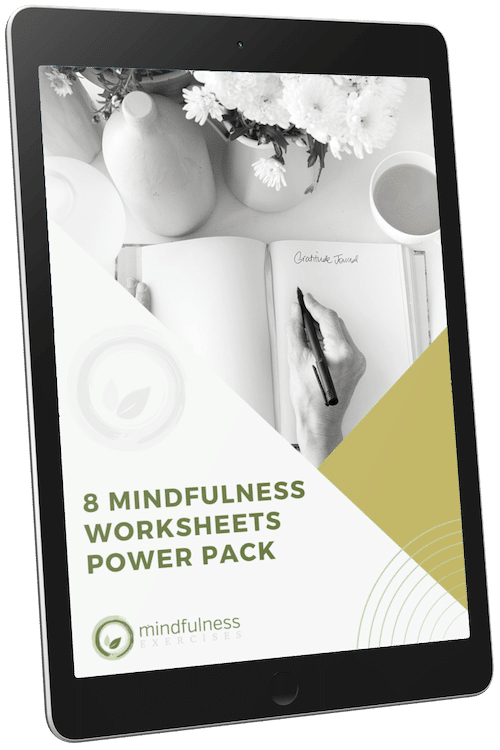A good night’s sleep is something we might take for granted – until we struggle to attain it, that is. If you are one of the many who struggle to fall (or to stay) asleep, rest assured you’re not alone. According to statistics, somewhere between 50 and 70 million adults in the United States suffer from some form of a sleep disorder (such as insomnia, restless legs syndrome, and sleep apnea).
Perhaps this is not something we can rest assured with. The fact that we’re not alone does little to help us mitigate the sleep challenges we face. So, what can we do about it? From plenty of emerging science and ancient wisdom, it is now clear that sleep meditations go a long way in easing the restlessness we face before bed or in the middle of the night.

In this comprehensive guide to meditations for sleep, we will explore:
How Meditation Improves Sleep
To understand how meditation helps to improve the quality of our sleep, we need to consider the reasons we might not be getting the sleep we need in the first place. Some of the root causes of poor sleep quality and quantity include:
If we’re struggling to sleep, the reason might be rooted in any number of these factors. Sleep meditations help to address a number of these; and, when mindfulness is practiced throughout the entire day, all of these areas tend to see improvement.
Let’s consider some of the physiological and psychological shifts that occur when we practice meditation. For example:
1. Meditation helps to balance cortisol, catecholamine, and melatonin in ways that are conducive with sleep.
Science has revealed that meditation practices help to regulate the HPA axis (the linkage between the hypothalamus, pituitary gland, and the adrenal glands).
This helps to balance out cortisol and catecholamine levels, two hormones that are released when we experience stress. It has also been found to increase melatonin, a hormone that plays a crucial role in maintaining the sleep-wake cycle. As we lead up to sleep (and during it), melatonin supports our ability to rest with ease.
2. Meditation helps to reduce heart rate, blood pressure, and breathing rate.
As we breathe mindfully during meditation, the breath tends to slow and deepen. In doing so, the relaxation response is initiated. This response works in contrast to our fight-or-flight response, helping us to soften any stress we might be carrying.
The heart slows, our blood pressure lessens, and the breath begins to flow more naturally. Softening our expectation of incoming threat, we begin to feel safe and at peace in our surrounds. As our physiology transitions into a peaceful state of being, so too does the mind.

3. Mindfulness and meditation practice reconnect us with the present moment while distancing us from anxious thought patterns.
In addition to the balancing of hormones and easing of the body’s stress response, meditation directly impacts the relationship we have with the inner world. Whether we turn our attention towards the breath, the body, or something else, we begin to detach ourselves from the stories that threaten to bind us.
Since anxiety is a major player in sleep difficulties, creating distance between ourselves and our anxious thoughts is hugely beneficial. Mindfulness of our emotions plays a big role in this too. As we witness our emotions as passing waves (rather than being fixed components of our experience), it becomes easier to let them go and to then drift into sleep.
In addition to these mechanisms, mindfulness and meditation also play a less-direct role in promoting sleep through influencing our daily habits and actions. As we become aware of the impact our food choices, technology usage, and other simple habits have on our sleep, we are encouraged to make lifestyle changes where they’re needed.
For instance, we might begin to dim the lights or refrain from screen-time in the hours leading up to bed. Or, we might make an effort to reduce sugar and alcohol intake before sleep. Whatever mindful choices we make here depends upon our unique circumstances and the root causes of our personal sleep struggles.
Elements of an Effective Sleep Meditation
What do the best meditations for sleep have in common? Well, a few things. Sleep meditations are similar to many general waking meditations. However, when the goal is sleep, the focus is typically on relaxation and letting go rather than on insight or single-pointed concentration. With relaxation as a guiding force, we can understand the elements of an effective sleep meditation quite intuitively.
These elements are not mandatory in all meditations for sleep, though you’ll find many of these qualities and techniques in the recordings you explore:
1. Calming Music – With or Without Binaural Beats
From nature sounds to Tibetan flute music, certain sounds are powerful contributors to peace and relaxation. In fact, research has now scientifically shown that natural sounds promote resting activity in the brain through increasing ‘rest and digest’ nervous system activity. Perhaps this is why so many meditations for sleep include sounds of trickling streams, light rain, and log fires.
Furthermore, binaural beats are incorporated into some sleep tracks as well. Binaural beats are auditory illusions that arise in the brain when it encounters two different frequencies at the same time. These tones have different effects on our brainwaves dependent upon the difference in frequencies of each tone. Regardless, they are largely believed to promote peace, healing, and relaxation.

2. Breath Awareness
Many sleep meditations include breath awareness or deep breathing practices. The breath is a wonderful anchor to redirect an anxious mind – and, as we’ve uncovered, it helps to bring about the body’s relaxation response. If we’re meditating on our own before bed, deep breathing is a great place to begin our practice. It’s also a great practice to turn to when we wake in the middle of the night and struggle to fall back asleep.
3. Body Scan
Becoming aware of the body is another way to slowly soften into sleep. Unconsciously, we tend to hold quite a bit of tension in the physical body. Whether in the forehead, the shoulders, the jaw, or the belly, we each have different areas that tend to contract when we are stressed.
Often, these contractions are so habitual that they occur subtly in the background of our experience. So, to help release this, body scan practices increase our awareness of the tension we hold. As we mindfully soften, we find it easier to sink into sleep.
4. Guided Imagery
Last but certainly not least, guided visualization is a powerful practice that is explored in many sleep meditations. Usually offered after breath or body awareness, guided imagery helps us to imagine new possibilities, think positively, and let go of the day behind us. These meditations can also include positive affirmations, which are a great way of helping the brain to move away from fear-based thoughts and beliefs.
Again, not all of these need to be present for a sleep meditation to be effective. However, you’ll likely find some combination of these in whatever sleep meditation you choose to sink into.
Setting the Stage: What to Do Before Bed
Before getting to your sleep meditation, it’s important to prepare your inner and outer world for this transition. Over time, these steps will occur naturally; but, if you’re currently struggling to sleep peacefully, mindfully consider these tips to help support your bedtime meditation practice:

1. Turn off or cover up all lights, including those on personal devices.
Light interferes with our melatonin production, so you can support your circadian rhythm by ensuring that no lights are glaring from your phone, computer, or elsewhere in your environment. You might even transition into this by dimming the lights in your home two hours before bed.
2. Refrain from sugary foods or drinks 2-3 hours before bed.
As briefly mentioned, sugar interferes with our sleep cycle – and it does so in two ways. First, it can make it difficult for us to fall asleep from the beginning due to high blood sugar levels at bedtime.
Second, it can wake us in the middle of the night when blood sugar levels plummet and the body secretes cortisol to counteract this drop. In any case, we can mitigate this by eating balanced meals throughout the day – and by refraining from refined foods and sugary snacks before bed.
3. Make a to-do list for the following day if it helps to put your mind at ease.
Lastly, for those that go to bed with anxious thoughts about the day ahead, it can be helpful to write a to-do list before or after dinner to organize yourself. By setting your day up in this way, it will be harder for the mind to justify its need to organize. Get it down on paper early so that you can mindfully soften before sleep.
In addition to these tips, it’s important to compassionately communicate our needs with anyone we share space with. Perhaps we need to commit to an earlier bedtime, or maybe we need some quiet time before going to sleep.
If we’re not quite sure what it is that we need, we can begin by keeping a sleep journal to get to know our personal cycles. As we start to draw lines between our routines and our sleep habits, we’ll feel more comfortable and confident setting nightly routines that support us.
5 Best Meditations for Sleep
Once you’re settled, you can practice self-guided meditation through breath or body awareness, affirmation practice, or any other technique that suits you. Alternatively, you can use guided meditations designed specifically for sleep to help you trail off. While there are plenty to choose from, these are 5 of the best meditations for sleep.

This guided meditation by Jason Stephenson is a soothing recording that includes both subtle background sounds and soft-spoken words. The first half of the recording is guided, alongside a backdrop of soft, crackling fire sounds. The second half is unguided as we are invited to let the simple sounds of fire and rain settle the mind and body.

Another meditation designed for a restorative slumber, this recording is different from traditional guided meditations. Without words, this meditation focuses on sounds and binaural beats. It contains a binaural beat of 396 Hz, a frequency said to help us release fear, guilt, and other challenging emotions. As we listen to this recording before bed, we can practice open awareness of the present moment – sounds, sensations, and thoughts – finding the peace that rests beneath it all.

‘Floating Amongst Stars’ is another Jason Stephenson sleep meditation. In this recording, guided visualization is used to create a sensory experience that broadens and relaxes the mind. After taking a cosmic journey amongst stars and planets, soft music pervades the meditation to help listeners drift into a peaceful and restorative slumber.

This guided meditation for sleep is nature-inspired, taking listeners on a journey into a beautiful meadow. The imagery helps to cultivate a sense of safety and comfort, helping the mind to soften and to refocus on feelings of peace. To complement the visualization, it explores both breath and body awareness to help the body relax.

Last but not least, this simple, mindfulness meditation provides gentle direction to help us reattune to the breath and to our immediate sensory experience. The accompanying music is soft and subtle, encouraging a deep surrender into the present moment. After about fifteen minutes of guidance, another forty-five minutes of music carries listeners into sleep.

“There is a time for many words, and there is also a time for sleep.”
- Homer, The Odyssey -
Getting enough quality sleep is crucial for our health and wellbeing. We sometimes forget this when we’re sleeping well, but when our sleep falters, we realize just how important it really is. If good sleep feels hard to come by, take a deep breath and let even your worries about it go.
Notice where the mind exacerbates the challenges at hand, and remind yourself: falling asleep is only ever a breath away. Breath by breath, we can ease ourselves down – both in body and mind – until soon slumber washes over us with grace.













